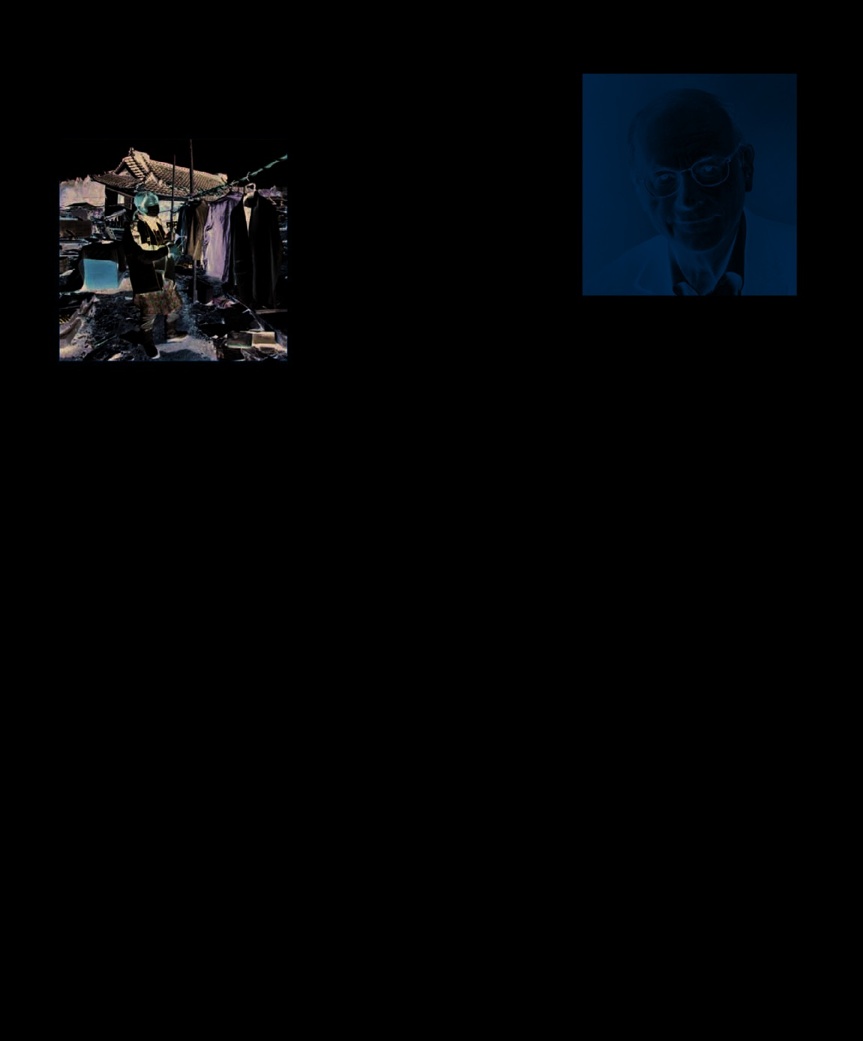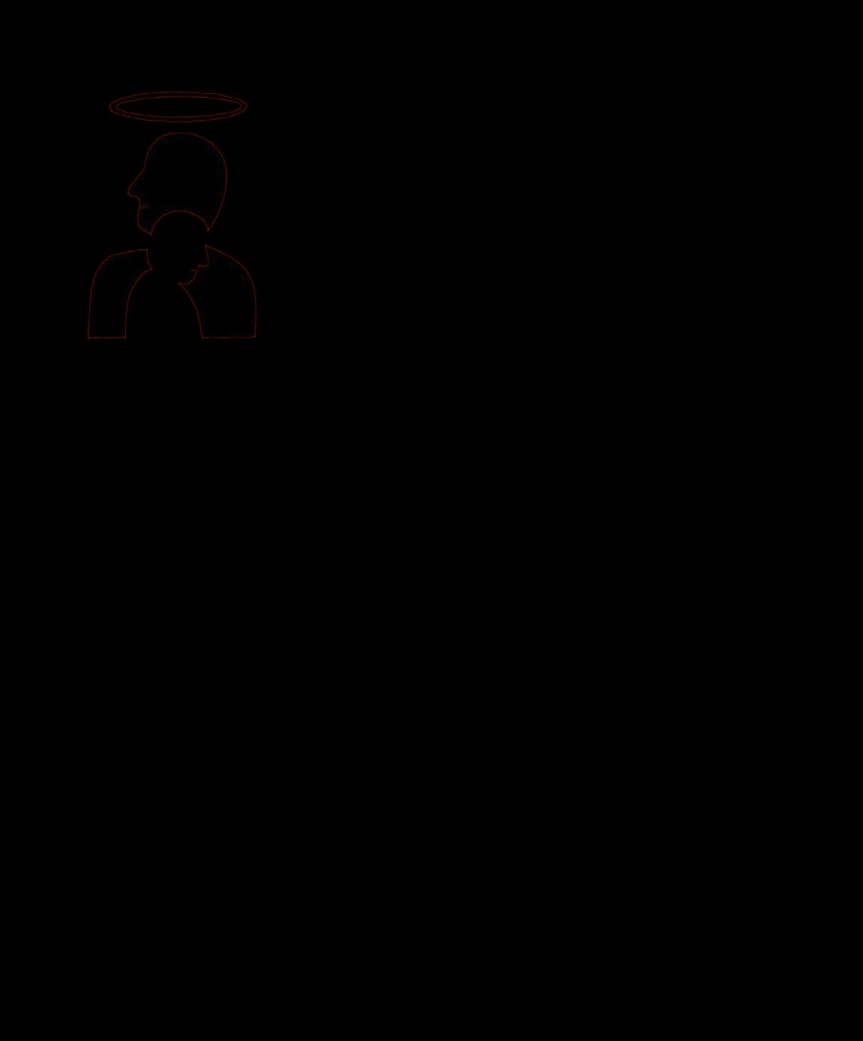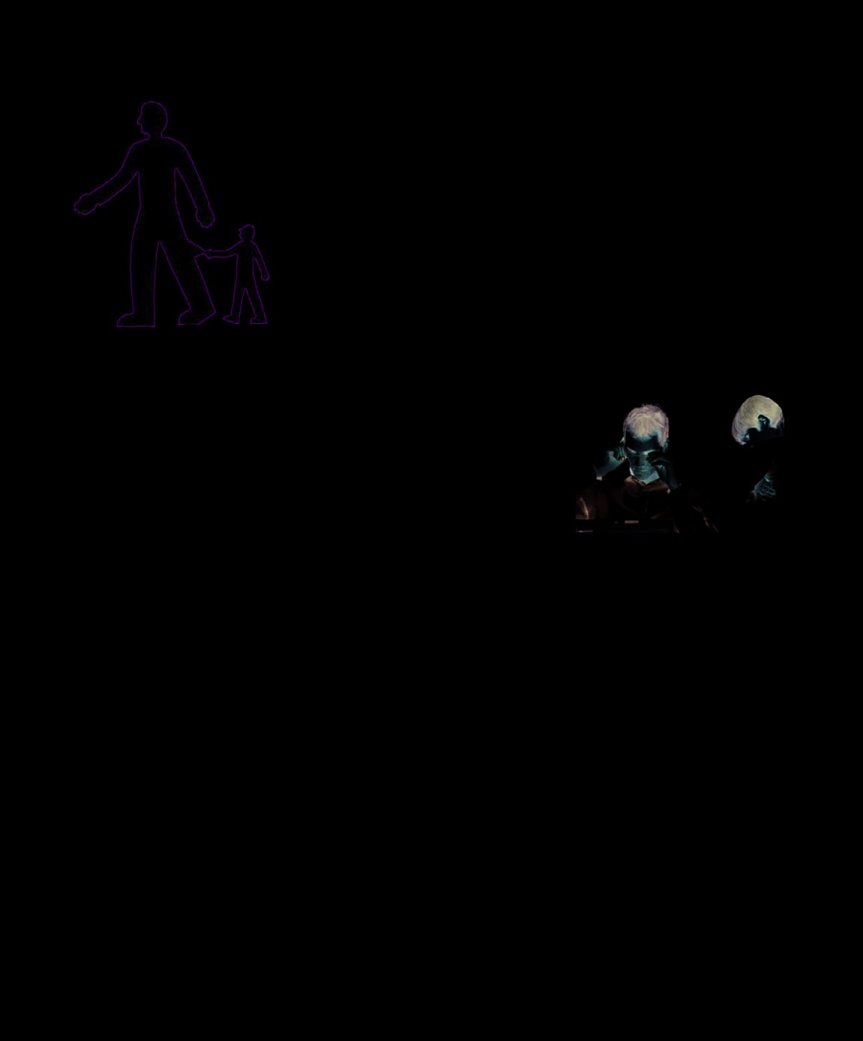The Psychology Book (48 page)
Read The Psychology Book Online
Authors: Unknown

and suffer nightmares, flashbacks,
study of psychological resilience.
Psychological Association
and anxiety attacks. Other people,
Resilience is not a quality
forms a task force on
however, react differently. They
inherent within a person, Cyrulnik
psychological resilience.
seem to manage not only the normal
found, but one that builds through a
ups and downs of their lives, but
natural process. He says that “alone,
also potentially overwhelming
a child has no resilience… it is an
losses and traumas. Instead
interaction, a relationship.” We build
of becoming depressed and
resilience from developing

PSYCHOTHERAPY 153
See also:
Sigmund Freud 92–99 ■ John Bowlby 274–77 ■ Charlotte
Bühler 336 ■ George Kelly 337 ■ Jerome Kagan 339
After disasters such as tsunamis
psychologists have witnessed the
formation of resilient communities,
characterized by the residents’
determination to overcome adversity.
has happened, to find strength in
the experience instead of letting it
defeat them, and to use the strength
to move defiantly forward. Given
the right support, children are
Boris Cyrulnik
especially capable of complete
recovery from trauma. Cyrulnik has
Boris Cyrulnik was born to
Jewish parents in Bordeaux,
shown that the human brain is
France, shortly before the
relationships. We are constantly
malleable and will recover if
outbreak of World War II. In
“knitting” ourselves from people
allowed. The brain of a traumatized
1944, when the Vichy regime
and situations that we encounter,
child shows shrinkage of the
controlled unoccupied southern
through the words we exchange
ventricles and cortex, but where the
France by arrangement with
and the feelings that arise. We
child is well supported and loved
Germany, his home was raided
might feel that if one “stitch” is
after the trauma, brain scans have
and his parents were taken to
dropped, our lives will unravel. In
shown the brain to be capable of
Auschwitz concentration
fact, “if just one stitch holds, we
returning to normal within a year.
camp. His parents had placed
can start all over again.”
Cyrulnik stresses the importance
him with a foster family for
Positive emotions and humor are
of not labeling children who have
safety, but within days they
key factors in resilience. Cyrulnik’s
suffered a trauma, thereby sidelining
turned him over to the
research has shown that people who
them to a seemingly hopeless future.
authorities for a small reward.
are better able to cope with life’s
Trauma consists of the injury and
He escaped while awaiting
difficulties or traumas are able to
the representation of that injury.
transfer to a concentration
camp and worked on farms
find meaning in hardship, seeing it
Enduring humiliating adult
until the age of ten, when he
as a useful and enlightening
interpretations of events can be the
was taken into care. He grew
experience, and even to find ways
most traumatic experience. Labels,
up in France, without any
to laugh. Resilient people always
he says, can be more damaging and
relatives. Largely self-taught,
remain able to see how things may
damning than the experience. ■
Cyrulnik eventually studied
turn out for the better in future, even
medicine at the University of
if the present is painful.
Paris. Realizing he wanted to
reevaluate his own life, he
Meeting the challenge
began to study psychoanalysis
It had previously been thought that
and later neuropsychiatry.
people who show more resilience
He has devoted his career
are less emotional in general, but
Resilience is a person’s
to working with traumatized
Cyrulnik believed that the pain is
ability to grow in the face
children.
no less for resilient people than it is
of terrible problems.
Key works
for others; it is a matter of how they
Boris Cyrulnik
choose to use it. The pain may
1992
The Dawn of Meaning
continue, even over a whole lifetime,
2004
The Whispering
but for these people it raises a
of Ghosts
challenge that they decide to meet.
2009
Resilience
The challenge is to overcome what

154
ONLY GOOD
PEOPLE GET
DEPRESSED
DOROTHY ROWE (1930– )
IN CONTEXT
APPROACH
I
f people could stop blaming the idea of a Just World and think
themselves for things that
more rationally about negative
have happened in their lives,
experiences. We might suffer from
the rate of depression would
bad parenting, job loss, or even a
Personal construct theory
decrease dramatically. This premise
devastating tornado, but these
BEFORE
is the foundation of Dorothy Rowe’s
things did not happen because we
success in treating the problem.
are doomed to misfortune, nor do
1940s
Gestalt therapy is
We are generally brought up to
we deserve to be treated badly.
founded, introducing the
believe that the world is a fair and
To recover from these setbacks,
notion that perception
rational place; that if we are good,
we need to stop personalizing
influences meaning.
good things will happen to us. But
events, start externalizing them,
1955
George Kelly publishes
if things go well when we are good,
and realize that sometimes bad
The Psychology of Personal
what does that say about us when
things just happen. ■
Constructs
, outlining the
things go wrong? Our belief in a
theory that everyone has a set
“Just World”—where the good are
of constructs (beliefs) about
rewarded and the bad punished—
the world and the people in it.
makes us blame ourselves for the
bad things that happen to us.
1960
Psychologist and
When we are wronged or hurt in
statistician Max Hamilton
some way, there is a tendency to ask,
To turn natural
constructs the Hamilton
“Why did this happen to me?” People
sadness into depression,
Depression Rating Scale
look back to see what they did to
all you have to do is blame
(HAM-D), a tool used to
cause the situation, even in the case
yourself for the disaster
measure clinical depression.
of a natural disaster. Self-blame, guilt,
that has befallen you.
helplessness, and shame irrationally
Dorothy Rowe
AFTER
arise when bad things happen, and
1980
Psychologist Melvin
these can lead to depression.
Lerner publishes
The Belief in
Rowe explained that we create
a Just World: A Fundamental
and choose our beliefs. Once we
Delusion,
explaining how we
understand this, we can let go of
wrongly believe that people
get what they deserve.
See also:
Fritz Perls 112–17 ■ Carl Rogers 130–37 ■ Albert Ellis 142–45 ■
Melvin Lerner 242–43 ■ George Kelly 337

PSYCHOTHERAPY 155
FATHERS ARE
SUBJECT TO A
RULE OF SILENCE
GUY CORNEAU (1951– )
IN CONTEXT
APPROACH
B
efore French-Canadian
analyst Guy Corneau
published
Absent Fathers,
Lost Sons
in 1991, psychology had
Masculine psychology
given little attention to emotional
BEFORE
communication between men.
Corneau’s book examined the
1900s
Freudian analysts
difficulties of intimate conversations
describe the Oedipus complex,
between the male generations. He
which states that sons feel
recounts his attempts to make an
Communication
between fathers and
naturally competitive with
emotional connection with his
sons is often characterized by silences.
their father.
While sons long for recognition and
own father: reaching out, seeking
approval from their fathers, fathers are
1950s
French psychoanalyst
approval, but receiving only silence.
reluctant to give this approval freely.
Jacques Lacan argues that
the son sees the father as
Withholding approval
embodying the law.
Corneau recognizes that this
compromising his own power,
sequence of events is a familiar
making it less valuable. From the
AFTER
pattern in men, who are often
son’s point of view, if approval is
1991
In
Iron John: A Book
unable to shower their sons with
given too easily, without some
About Men
, American author
the praise, affection, or recognition
degree of withholding, the father is
Robert Bly says that fathers
craved by their offspring. When the
then no longer worthy of impressing.
fail to give their sons what
son experiences this silence, he
It appears that in most forms of
they need to become men,
may try harder to impress, or he
society there is a belief that men
and suggests that they
might withdraw, but the silence
cannot be both strong and open.
need to reawaken the
remains irrevocably imprinted in
Corneau says that this behavior
“Wild Man” within.
his mind, according to Corneau.
does a disservice to men. They are
The phenomenon may stem from
denied the opportunity to express
1990s
American writers
a competitive interplay of male
affection toward their sons—and
